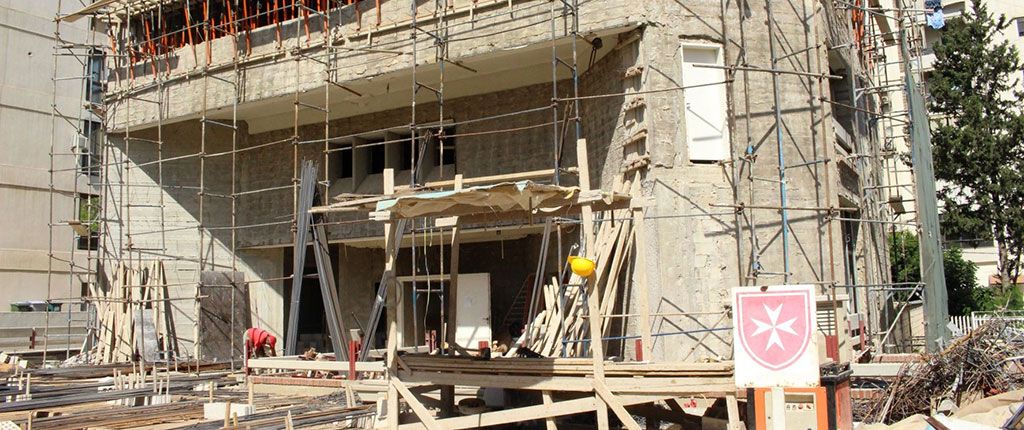
"We have not been turned away once".
The health care system in Lebanon is under massive pressure due to multiple crises in the country, and providing care to people is becoming increasingly difficult. Malteser International, together with the Lebanese Association of the Order of Malta, has already been operating a total of six mobile clinics for refugees and Lebanese in need since 2014 and will continue to support the country in the coming years: Among other things, the modernization of eleven health centers and the establishment of a training center for medical personnel in Beirut are planned. In addition, an extensive program has begun to create income opportunities for farmers in the vicinity of the medical centers and to revive agricultural production.
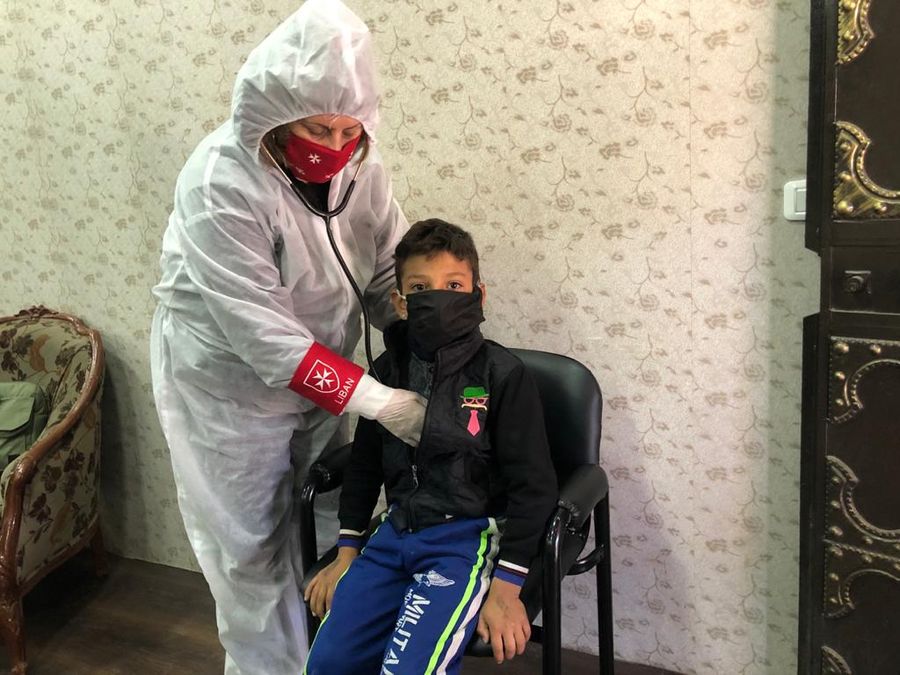
Hussein holds his mother's hand as he waits to be examined. The ten-year-old is wearing sneakers and sweatpants, like most boys his age in villages in northern Lebanon. However, Hussein cannot participate in the games and activities of the other children. He finds it difficult to concentrate, can barely speak and suffers from incontinence - the consequences of brain damage due to a severe lack of oxygen caused by his illness.
In one of the mobile clinics run by Malteser International in the remote rural regions of Lebanon, he receives urgently needed medication. Hussein lives with his parents and four siblings in the refugee village of Fakiha in northern Lebanon. They are one of many families - more than 1.5 million people in total - who have fled to the neighboring country to escape the ongoing violence in Syria. Lebanon is the second largest host country for refugees from Syria after Türkiye. If you put their numbers in relation to the size of the population, Lebanon has taken in the most people fleeing the country worldwide - Iraqis, Sudanese, Ethiopians and Palestinians are also seeking protection here. Together, they make up more than a quarter of the country's population.
Country under pressure - multiple crises in Lebanon
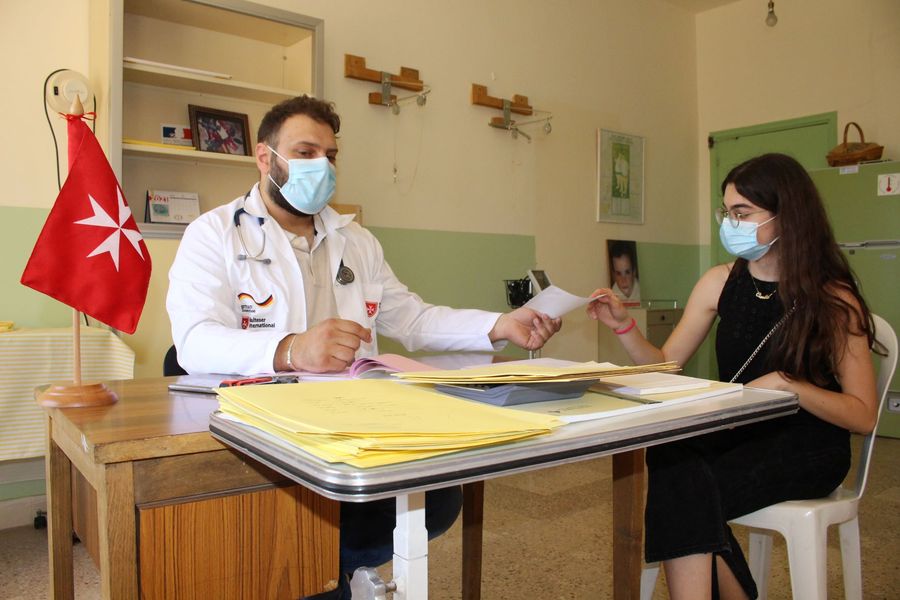
The situation in Lebanon is extremely difficult: For years, the country has been suffering from a severe political and economic crisis, unemployment is high and the increasing devaluation of the Lebanese pound means that more and more people are falling into poverty and can barely meet their daily needs. Between December 2020 and March 2021 alone, food prices in Lebanon increased by around 400 percent. More than half of the country's roughly six million people now live below the poverty line.
"Many Lebanese feel increasingly overwhelmed and perceive their situation as hopeless. Food prices are rising. Managing everyday life alone is becoming difficult for more and more people," says Clemens Graf von Mirbach-Harff, Secretary General of Malteser International, who previously worked as country coordinator in Lebanon for three years.
The Corona pandemic is putting additional pressure on the country's health and social systems, which are already under enormous strain. This is particularly affecting the poorest: everywhere, health centers and hospitals lack the financial resources to provide people with adequate care. In addition, many refugees - and thus many of the people in particular need - live in the poorest regions of Lebanon, where the infrastructure is inadequate in almost all areas.
Mobile clinics provide treatment for the poorest
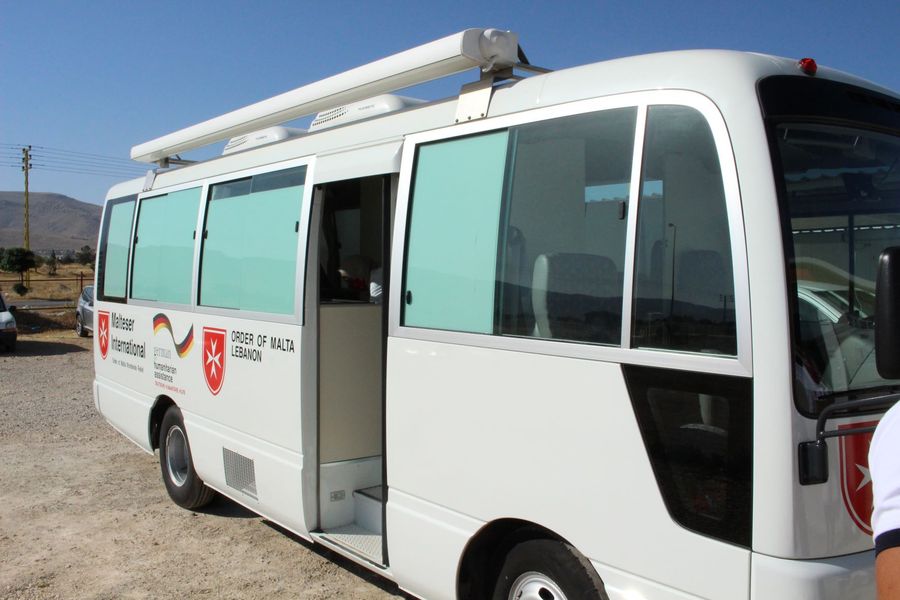
The Corona pandemic is putting additional pressure on the country's health and social systems, which are already under enormous strain. This is especially affecting the poorest: everywhere, health centers and hospitals lack the financial resources to provide people with adequate care. In addition, many refugees - and thus many of the most vulnerable people - live in the poorest regions of Lebanon, where the infrastructure is inadequate in almost all areas.
Without Malteser International's mobile clinics, there would be no access to medical care for many people like Hussein and his family. Malteser International, together with the Lebanese Association of the Order of Malta, has been operating a total of six mobile clinics for refugees and Lebanese in need in the provinces of Akkar, Nabatieh and the Beeka Plain since as early as 2014. Each of these clinic buses is staffed by a team of two doctors, two nurses and two drivers, plus a social worker and an outreach coordinator for each. During the Corona pandemic, the mobile clinics were adapted to the new situation, for example by setting up erectable isolation wards and separate waiting areas, and the equipment with disinfectants and protective materials was improved. Each mobile clinic provides up to 1,200 treatments per month. Severe cases are referred to health centers and hospitals.
Hussein and his mother have been coming to "their mobile hospital" every 15 days for the past year to have the boy examined and to pick up his medication. "Before, I couldn't take Hussein to a doctor, we didn't have money for treatment. I can't thank you enough for the support we receive here. We have not been turned away once," says Hussein's mother, who is caring for the boy.
Strengthening the health system, creating new livelihoods
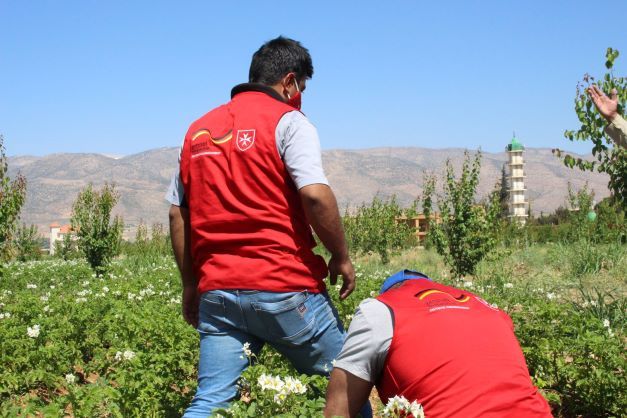
Malteser International will continue to support and accompany the people in Lebanon for many years to come. Among others, the modernization of eleven health centers and the establishment of a training center for medical staff in Beirut is planned. In addition, an extensive program has begun to create income opportunities for farmers in the vicinity of the medical centers and to revive agricultural production.
The focus is also on further developing activities for social cohesion and interfaith dialogue in society, according to Mirbach-Harff: "The Order of Malta has been active in Lebanon for more than seven decades and during this time has developed into a respected civil society actor in the health and social sectors that people trust. We want to use this experience to turn a vision into reality: Building a society strengthened by its religious diversity and built on the shared core values of love, peace, justice and peaceful coexistence."
(May 2021)








